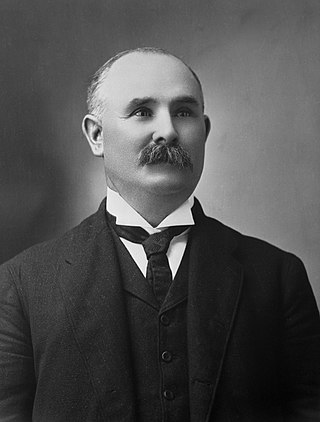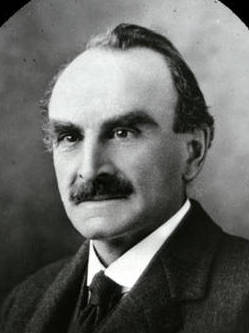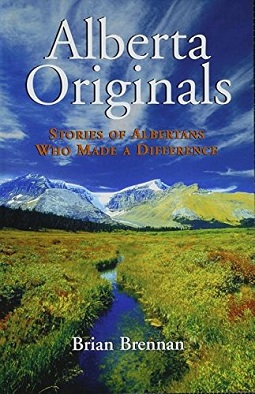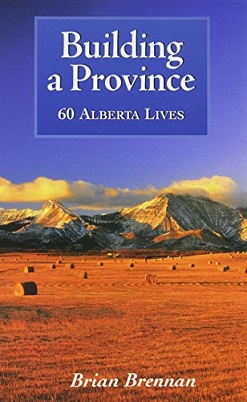
The Calgary Stampede is an annual rodeo, exhibition, and festival held every July in Calgary, Alberta, Canada. The ten-day event, which bills itself as "The Greatest Outdoor Show on Earth", attracts over one million visitors per year and features one of the world's largest rodeos, a parade, midway, stage shows, concerts, agricultural competitions, chuckwagon racing, and First Nations exhibitions. In 2008, the Calgary Stampede was inducted into the ProRodeo Hall of Fame.

The culture of Alberta refers to the art, customs, and traditions of the people of Alberta. Alberta entered into Confederation in 1905, placing her in a tie with Saskatchewan as the country's second youngest province. Despite her short history, the province possesses a rich culture. The vastness of the land and variation of geography – which includes mountains, foothills, grassland, parkland, forest, and rockland – have served as important sources of creative inspiration across all art forms. Alberta's primary industries of farming, ranching, and petroleum also play a major part in the province's culture and identity.
Stanley Charles Waters was a Canadian lieutenant-general and politician. Appointed to his Senate seat following a non-binding provincial Senate election, he has been called Canada's "first elected senator".

George Guy Weadick was an American cowboy, performer and promoter. He and his horse Cyclone quickly became well known in the Calgary area. Today, he is best known as the founder of the Calgary Stampede in Alberta, Canada. He was married to famed cowgirl, Florence LaDue. Weadick was the first to be inducted in the Builder category in the Canadian Pro Rodeo Hall of Fame.

Franco-Albertans are francophone residents of the Canadian province of Alberta. Franco-Albertans is a term primarily used to denote the province's francophone residents. In the 2016 Canadian Census, there were 86,705 Albertans that stated their mother tongue was French.

Calgary-Cross is a current provincial electoral district in Calgary, Alberta, Canada. Created in 1993, the district is one of 87 districts mandated to return a single member (MLA) to the Legislative Assembly of Alberta using the first past the post method of voting.
Nicholas William "Nick" Taylor was a geologist, businessman and politician from Alberta, Canada.

Patrick Burns was a Canadian rancher, meat packer, businessperson, senator, and philanthropist. A self-made man of wealth, he built one of the world's largest integrated meat-packing empires, P. Burns & Co., becoming one of the wealthiest Canadians of his time. He is honoured as one of the Big Four western cattle kings who started the Calgary Stampede in Alberta in 1912.
Elizabeth Sterling Haynes was an Alberta theatre activist. Haynes was a driving force in the Little Theatre Movement in Alberta.

Moyie is an unincorporated community in the East Kootenay region of British Columbia, Canada. It is located on Highway 3, 30 km south of Cranbrook on the eastern shore of Moyie Lake.

Archibald James McLean was a cattleman and politician from Ontario, Canada. He was one of the Big Four who helped found the Calgary Stampede in 1912.
The Wildrose Party was a conservative provincial political party in Alberta, Canada. The party was formed by the merger in early 2008 of the Alberta Alliance Party and the unregistered Wildrose Party of Alberta. The wild rose is Alberta's provincial flower.
Kyle Norman Fawcett is a Canadian politician and former Member of the Legislative Assembly of Alberta, representing the constituency of Calgary-Klein as a Progressive Conservative.

Francis Murray Patrick McMahon was a Canadian oilman best known as the founder of Pacific Petroleums and the Westcoast Transmission Company. Time magazine called him "The man who did the most to open up northwest Canada's wilderness—and convince oilmen of its treasures."

Alfred Ernest Cross was a Canadian politician, rancher and brewer, known as one of the Big Four who founded the Calgary Stampede in 1912.

The 1937 Social Credit backbenchers' revolt took place from March to June 1937 in the Canadian province of Alberta. It was a rebellion against Premier William Aberhart by a group of backbench members of the Legislative Assembly (MLAs) from his Social Credit League. The dissidents were unhappy with Aberhart's failure to provide Albertans with CA$25 monthly dividends through social credit as he had promised before his 1935 election. When the government's 1937 budget made no move to implement the dividends, many MLAs revolted openly and threatened to defeat the government in a confidence vote.
An Alberta Liberal Party leadership election was held at the Alberta Liberal Party's 2017 Annual General Meeting in order choose a permanent successor to Raj Sherman who resigned on January 26, 2015. Sherman, who was under investigation over alleged illegal campaign donations, indicated in a statement to the media that he was resigning as leader immediately for personal reasons and did not run for re-election as a Member of the Legislative Assembly of Alberta at the provincial election held on May 5, 2015. The leadership election was originally scheduled for April 23, 2016 but has been delayed for a year to give prospective candidates more time to organize. David Khan was elected.

Martha Ruth Cohen, CM, LLD was a Canadian community activist and philanthropist. She spearheaded a variety of major civic projects, including construction of the $45 million Calgary Centre for the Performing Arts. As chairwoman of the board of directors at Mount Royal College, she oversaw the construction of a new campus and was the first woman to head a higher educational institution in Alberta. She was a member of the Order of Canada and received an honorary doctorate from the University of Calgary in 1982.

Alberta Originals: Stories of Albertans Who Made a Difference, originally published by Fifth House under ISBN 1-894004-76-0, is a book of short biographical profiles written by Irish-Canadian author Brian Brennan. It's a sequel to Building a Province: 60 Alberta Lives, which Brennan published a year earlier.

Building a Province: 60 Alberta Lives is a book of short biographical profiles written by Irish-Canadian author Brian Brennan. It takes as its point of departure the feature obituaries Brennan wrote while working as a staff columnist with the Calgary Herald between 1992 and 1999.














